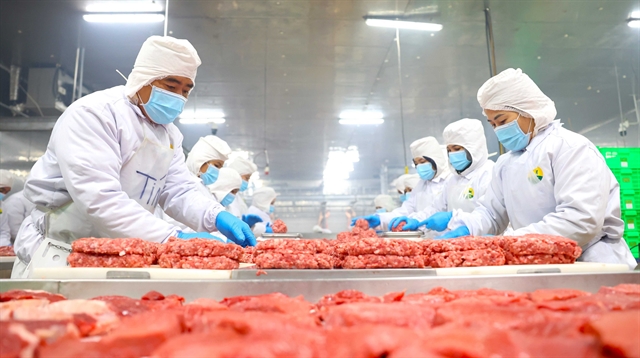 Media-OutReach Newswire
Media-OutReach Newswire

HONGKONG SAR - Media OutReach - 2 February2021 - Many people will set new personal goals in the Lunar New Year. To bettersupport the public in building effective health habits, Reckitt Benckiser HongKong Limited (RB) is revealing the findings from its recently-commissioned survey,named the "Hong Kong Wellness in Action Index"[1]. The longitudinal surveyaims to understand local citizens' levels of satisfaction on their physical,mental and social wellbeing, as well as their practices in building healthhabits.

|
Aspart of an ongoing series of health insights, the survey will also coverin-depth discussions of different health topics on a regular basis, with expertsfrom different disciplines sharing their insights on the findings whileproviding valuable and practical advice to the public. For this inauguralannouncement, the survey looks into the impact of COVID-19 on respondents' wellness,including challenges in maintaining healthy relationships - among couples aswell as between parents and their children.
Highlights of the Survey
| Main Focus: Wellness-in-Action |
|
| Health Topics: Wellness and Pandemic |
|
Give Yourself a Reason to Begin with Experts' Wellness Lifehacks: Link
Basedon the survey findings, an expert panel consisting of a physiotherapist,psychiatric specialist, clinical psychologist and social worker put together aset of tailor-made "Wellness Lifehacks" to help the public improve theirphysical, mental and social wellbeing.
Dr. Gregory Mak, a PsychiatricSpecialist, pointed out, "The survey showed that many people have low confidencein building new health habits and are easily affected by procrastination. To tackle the issues, we propose asimple 5-step approach to help changing their mindsets at the beginning of theYear of the Ox."
Ms.Wendy Shum, a Registered Physiotherapist, said "Many people want to start exercisingduring the pandemic, however, there could be 'blind spots' when one is startingout. For example, injuries have increased as people are doing exercises as instructedvia online videos without proper supervision. With our 'Wellness Lifehacks', wehope to enable the public to develop healthier lifestyles in a better and saferway."
Ms.Felicia Lau, a Registered Clinical Psychologist, added, "This survey revealedplenty of insights. For example, many respondents agreed that the pandemic madethem care more about their family and friends. Thus, we recommend the public toexpress their care to the loved ones and keep in close contact with friends, toimprove their wellbeing and enrich their social lives. We also hope to encouragethem to embrace positive changes brought by the pandemic."
KeySurvey Findings
Lowsatisfaction levels towards social wellbeing
Fora score of 0-100, respondents have higher levels of satisfaction for "physical wellbeing"at 70 points and "mental wellbeing" at 64 points. "Social wellbeing" only scoredlow at 59 points. Nearly 60% of respondents say their satisfaction levelstowards social wellbeing has declined in the past three months, which may be a reflectionon the lack of social interaction brought by the pandemic.
Establishing health habits is regarded as a "lost cause"
Over90% of respondents say they are keen to develop new health habits in 2021,citing three main goals -- "do more exercise" (84%), "maintain a healthy diet"(72%) and "engage in more outdoor activities" (52%). However, less than 40% ofrespondents have confidence in maintaining these habits. This may reflect that aninability or proper motivation to put their health habits into action, regardthem as a "lost cause" even before starting.
People are plagued by procrastination
Morethan half of the respondents admit they procrastinate and around 70% believeprocrastination will have negative consequences. Respondents agree that the problemof "prolonged procrastination" should be tackled, with over 60% hoping toimprove their situation.
The pandemic brings positive changes
Thepandemic has impacted negatively on the public's wellbeing. The most common impactsinclude "more concerned about my job/financial status" (61%), "the new work- orstudy-from-home mode creates more pressure" (57%) and "feeling more anxious andagitated" (52%). However, there were positive changes, including "increase awarenessof personal wellbeing" (80%), "care more about people around me" (76%) and "spendmore time with my family" (71%).
Youngsters are less concerned about hygiene habits
Over80% of respondents believe that having good personal hygiene habits helpsmaintaining a positive physical and mental health. 56% of respondents aged 30or above aim to "live a more hygienic life" in 2021, while only 38% of thoseaged between 12 and 29 have such a goal. This may reflect that youngsters areless concerned about hygiene issues.
Couples' relationships are challenged during the pandemic
Thepandemic has affected interactions between couples and creates tension in theirrelationships. Around 40% of respondents with a spouse/partner believe thepandemic has "restricted my interaction with my spouse/partner". Over 30% claimthat they have "less intimate time with my spouse/partner". A quarter ofrespondents also say that their relationship "has been distanced" and "have morearguments with my spouse/partner".
Expert Tips - 5 Missions to Improve the Relationship amongCouples (By Psychiatric Specialist)
Challenges of parent-child relationships
Around50% of parents felt the pandemic impacted their children's social wellbeing.More than 60% of parents expressed that studying at home has created morepressure for their children, and over 50% of them said that the pandemic hasmade their children feeling more anxious and agitated.
Mr.Pankaj Agarwal, Reckitt Benckiser's GeneralManager Hong Kong & Taiwan, Health, said, "RB has always driven by its purposetoprotect, heal and nurture in a relentless pursuit of a cleaner, healthierworld, and putting customers first. As a leader in FMCG industry, we launched thefirst 'Hong Kong Wellness in Action' Index, together with the professionaladvice from the expert panel, we hope to leverage our trusted brands' expertiseto provide all-rounded information and practical tips to the public, helping HongKong citizens to take a proactive approach in kick-starting a healthierlifestyle in the new normal."
Mr. Cyril Chung, a registeredsocial worker, also added, "The survey gave a good representation in terms ofthe topics and age groups covered. It helps us better understand thecommunity's ability to adopt a healthier lifestyle as a whole. With thecomprehensive information provided, we can offer the public with more validrecommendations."
[1] FRC (HongKong) Ltd, an independent research firm, was commissioned to conduct the surveyin December 2020. There were 1,014 respondents, aged 12 and above. Thosesurveyed include 156 parents with children between 3 -- 12 years' old, and 669respondents with a spouse/partner.




